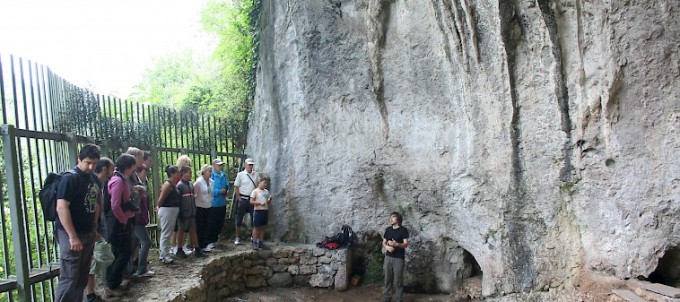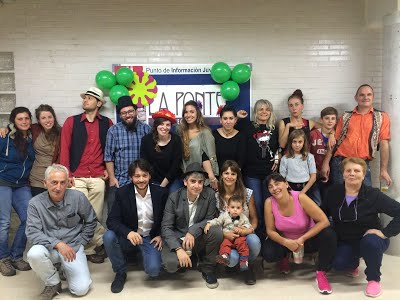La noche del 30 de septiembre se dieron a conocer los ganadores de los Leading Culture Destination Awards, «los Oscars de los Museos», unos de los premios más importantes de la Museología a nivel internacional. A la ceremonia, que tuvo lugar en el lujoso Hotel Langham de Londres, acudieron representantes de las Industrias Culturales, profesionales de la museología, directores de museos, artistas como Jake Chapman, Polly Morgan y Mat Collishaw, la modelo y nutricionista Rosemary Ferguson, el Teniente de Alcalde de Quebec, el fotógrafo de Fauna Salvaje David Yarrow, y el director del Tourism at World Economic Forum, Geoffrey Lipman, entre otros.
Estos premios reconocen cada año el trabajo que se desarrolla en los museos y la importancia que tienen para la sociedad. El objetivo es reconocer públicamente el esfuerzo de estas instituciones dedicadas a la educación, a la conservación y como destinos para visitantes a nivel global, y por tratar de convertirse, además, en centros capaces de impulsar la evolución y la transformación social.
La selección de los nominados es un trabajo que se realiza durante todo el año, elaborando una lista de las instituciones museológicas que cumplen con la filosofía y la misión de los premios. Expertos y profesionales de la cultura y los museos son los que construyen las lista de nominados. Las recomendaciones de estos expertos, el asesoramiento de Lord Cultural Resources y el criterio de un jurado selecto son los que dictaminan la lista final de tres instituciones por categoría.
Las categorías que cada año son premiadas son: exposición del año, arquitectura de museo del año, restaurante del museo del año, tienda del museo del año, aplicación o proyecto digital del año para museo, destino cultural del año y nuevo museo del año. Pero la edición de 2016 contiene una novedad. Una nueva categoría: Soft Power Destination Awards. Esta categoría reconoce a las organizaciones culturales y museológicas su influencia e impacto en la sociedad. Es aquí donde el trabajo de La Ponte-Ecomuséu ha sido nominado y premiado para estos galardones de museología.

El decisión del jurado para conceder a La Ponte este galardón internacional se fundamenta en poseer un proyecto de innovación social, sostenible y resiliente. La Ponte es un ecomuseo gestionado por población local donde se socializa el patrimonio cultural y se transmiten valores de respeto hacia las comunidades rurales y su cultura. Es, además, un espacio de encuentro, aprendizaje y dinamización, un laboratorio social y cultural donde se reflexiona sobre los problemas de nuestro entorno. Los expertos alabaron efusivamente durante la ceremonia cómo desde una iniciativa ciudadana, el trabajo científico y la participación comunitaria se puede conseguir un proyecto museológico sostenible para una comunidad y un territorio. Un ejemplo a seguir para grandes y pequeños museos.

Enlaces:
- Página de internet de los premios: http://www.lcdawards.com
- Página de internet de los Premiso sostenibles: http://www.softpowerdestinations.com
Ganadores Leading Culture Destinations Awards 2016:
The Leading Culture Destination of the Year Award winners:
- Exposición delaAño: Proportio, Palazzo Fortuny, Venecia.
- Arquitectura de museo del año: The Broad Museum, Los Ángeles (arquitecto Diller Scofidio + Renfro)
- Tienda de museo del año: Louisiana Museum, Copenhague
- Restaurante de museo del año: LouLou, Museo de Artes Decorativas, París
- Museo digital del año: Rijksmuseum, Amsterdam
Best New Museum of the Year Award winners: (abierto en los último 15 meses):
- Europa: Tate Modern Switch House extension, Londres
- Norte América: The Broad Museum, Los Ángeles
- Centro y Sur de América: Museu do Amañha, Río De Janeiro
- África: Sinthian Cultural Centre, Senegal.
- Ásia (Pacífico): Design Museum Dharavi, India
The Traveller’s Award winners:
- Ciudad cultural del año: Ciudad de Quebec
- Hotel del año (implicación con el Arte): Durslade Farmhouse, Hauser & Wirth Somerset, Inglaterra.
Soft Power Destination of the Year Award winners:
- Best Soft Power Cultural Activation Award: The Cultural Spring, Sunderland
- Best Soft Power Cultural Organisation Award: The Canadian Museum of Human Rights, Manitoba
- Best Soft Power Cultural District Award: La Ponte Ecomuséu, Villanueva de Santo Adriano, España.
The Leading Culture Destination 2016:
- The Broad Museum, Los Ángeles
Óscar Navajas Corral
Dr. Museología
oscarnavajascorral@gmail.com





